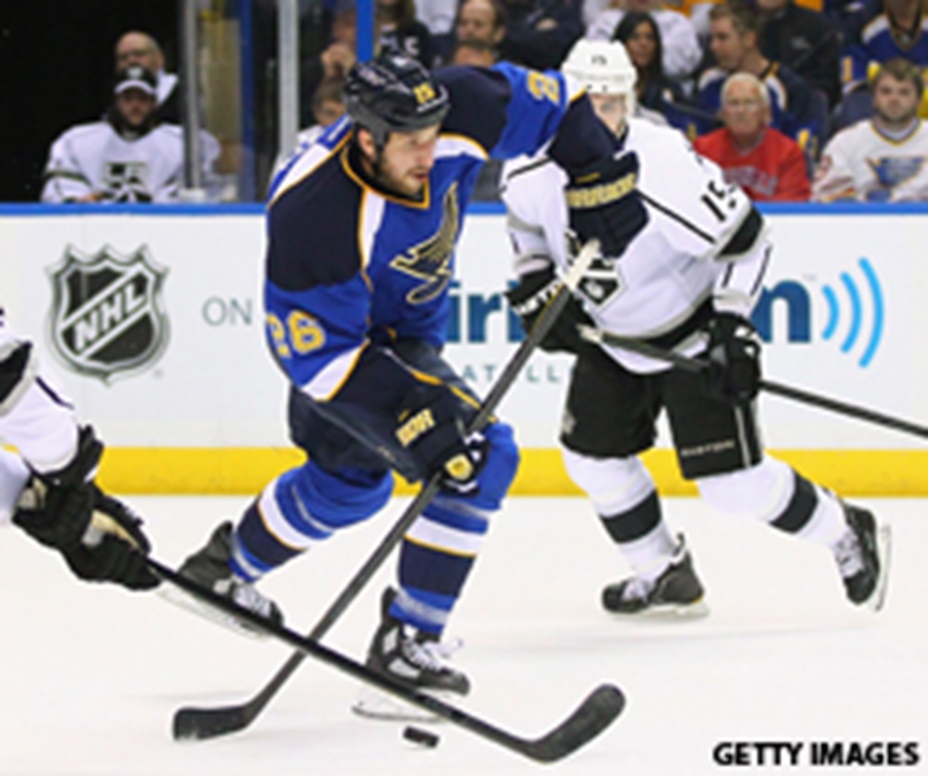Based on last week's NHL negotiating sessions in N.Y., "little progress has been made in the CBA talks," according to Kevin Paul Dupont of the BOSTON GLOBE. Dupont wrote, "No surprise there." The NHLPA "has yet to counter the league's initial proposal," which includes reducing the players' "take of hockey-related revenues (HRR) from 57 to 46 percent." That 11-point spread is "going to be the critical math that influences all of the rhetoric that gets dished out these next few weeks, perhaps months." In a business that "reportedly generated $3.3 billion last season, an 11-point swing in HRR represents a $360 million shift in wealth, from players to owners." This is a deal that "needs to be nipped and tucked." The big issues "can be pared, middled, modified, massaged, which inevitably means some shift in wealth back to the owners -- not unlike what happened in the NFL and NBA" (BOSTON GLOBE, 8/5). In Tampa, Damian Cristodero wrote, "Say this for the NHL and the Players Association, negotiations on a new collective bargaining agreement have been much more cordial than the contentious talks that produced the current CBA but also the 2004-05 lockout." Cristodero asked, "Why then, with the current CBA set to expire Sept. 15, doesn't it seem as if the sides are making much progress?" Lightning RW B.J. Crombeen said, "We've decided to take our time and really understand not just the numbers, but the reasons they're proposing what they are and where they're coming from" (TAMPA BAY TIMES, 8/5). The CP's Lynn Debruin wrote, "Concern is mounting about a shortened season." Debruin: "At some point, a counterproposal from the NHLPA needs to be made. It has the records. It has the paperwork. The puck is in its end of the ice, so to speak" (CP, 8/4).
WHAT DOES IT ALL MEAN? In N.Y., Larry Brooks wrote, "The CBA negotiations basically can be summarized thusly: The big-market teams don't want to pay the small-market teams, the small-market teams don't want to pay the players, and so, of course, the NHL is stuck in its flawed approach that satisfies both of these constituencies while reaching deep into the athletes' pockets but doing nothing to generate revenue for cash-poor franchises" (N.Y. POST, 8/5). In Chicago, Chris Kuc wrote if "anything is clear after a month of negotiations," it is that "this is going to take a while" (CHICAGO TRIBUNE, 8/5). In Columbus, Michael Arace wrote, "As long as the NHL lacks any meaningful plan to share revenue, then the head of the league will continue to eat the tail." Other major professional sports leagues "have taken forceful steps to stem such cannibalization" (COLUMBUS DISPATCH, 8/5).
TWO SIDES TO THE STORY: SPORTING NEWS' Jesse Spector wrote the owners' first offer was "outlandish, but it was a starting point, and now the union is giving the appearance of stalling, as it requests still more information from the league." The problem "is that having real negotiations does not benefit the NHLPA," because NHLPA Exec Dir Donald Fehr has "repeatedly made the point that the union would be perfectly happy to continue operating under the current CBA after it expires." It is a "public relations masterstroke by the union, shifting all responsibility in fans' eyes to the league in the event of a work stoppage." However, "if there is a work stoppage, both sides will be easy to blame." Spector: "It's time for both sides to get serious" (SPORTINGNEWS.com, 8/3). In Buffalo, Bucky Gleason wrote the post-lockout CBA in '05 was "for the most part ... a fair agreement." The NHL's proposal, "while bold, isn't going to change no matter how the players' association interprets the financial numbers." Both sides "know players are neither getting 57 percent nor accepting 46 percent" (BUFFALO NEWS, 8/5).
SUMMERTIME HOCKEY? The BOSTON GLOBE's Dupont wrote, "If the Summer Olympics can accommodate the NBA's best, why not bring in the NHL's best?" From the NHL's "business perspective, hockey would be a much better fit in the summer, Olympus acting as a tuneup ahead of September training camp." Dupont: "Shutting down the league midseason every four years for an Olympic break forever will be a tough fit for the NHL, and especially difficult on players who still must play an 82-game regular season" (BOSTON GLOBE, 8/5).




